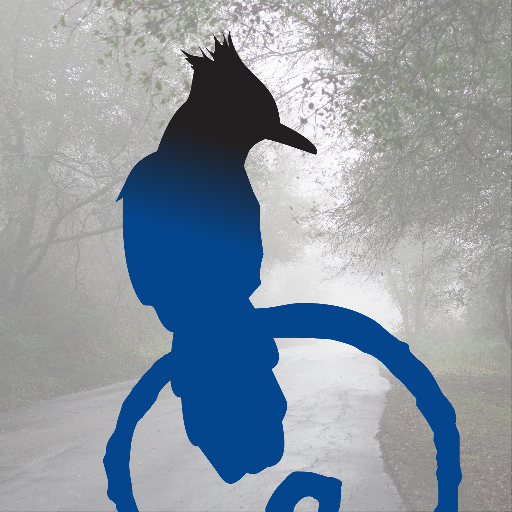
The Yellow Brick Roooooaaaad …
by Rachel Rodman
Art by Shelly Kay

For the first Dorothy, the farmland outside the window blurred. Then she experienced the briefest impression of something else …
… such light! …
In another moment, the farmland returned. So did Kansas, stark and clear: a place which, in comparison, would come to seem to her—suddenly and ever after—as very, very gray.
Had she blinked?
#
But roads grow, like dreams do.
At first, the longing makes them grow.
#
“Just down the way,” said the munchkins to the second Dorothy.
It was. After a few minutes’ stroll, all very pleasant—weren’t the bricks very lovely? so golden?—there was the Wizard, waiting for her. Within an hour, basket and balloon had been drawn to the launching platform, fresh helium had been pumped into the canvas, and she was in the air, sailing home.
#
And grow.
#
The third Dorothy killed a witch and found, sequentially, three friends. Then she met the Wizard, killed another witch, and met the Wizard again. Then she clicked her heels together.
It made a good story.
#
But roads grow, like cancers do.
The growing makes them grow.
#
“Why are you crying?” asked the Scarecrow.
“Toto is dead,” said the fourth Dorothy.
With the Scarecrow’s help, she buried her dog close to the Scarecrow’s pole. Toto had always been small. Rheumatism had made him smaller. The six years that had preceded that day—half his life—had also been very hard, as they had journeyed together westwards.
“Will you let me come with you?” asked the Scarecrow.
“Yes,” she said.
“Will you marry me?” asked the Scarecrow. This was some years after the burial; during that time, they had walked together every day: west, west, west.
“No,” she said.
Later that day, she found another pole for him. It was a nice pole, better in every respect than the pole that he had had before. Even the nails were nicer.
But he never admitted that it was nicer.
Five years later, she found a man who she wished would love her, who she wished would ask her.
But he only wanted oil.
So she left him behind her, almost immobile. One hand extended, he rusted in the rain.
She continued west.
A decade on, as she began to experience the press of time: If not now, when?
Then she met the Lion.
Was it love?
Their first child was born along the road. The second was born inside the City of Oz, two years after they began the paperwork that would be required to secure permission to leave. The third was born inside of her ancestral farmhouse, a building that, for years—ever since her aunt’s and uncle’s deaths—had lain unoccupied, but which now belonged to them: to her and to her husband.
To a lion who had learned to be brave by marrying her.
For themselves and for their mixed family (“Animal!” the Kansans would say of her husband; “Monsters!” the Kansans would say of their children; “Bestial fornicator!” the Kansans would say of her), still more bravery would be required.
They would be brave together.
#
The way that a pinprick of infinite mass, compressed to an infinite density, behaves once its surroundings have been altered …
#
The fifth Dorothy died and her daughter died and her daughter also died.
Their family was nomadic. Every week, every year, every decade, they pressed ever towards the setting sun. A legend and a promise drew them on.
And it was there, wasn’t it?
The Emerald City?
One woman, who was one-half lion, one-quarter tinman, and one-eighth scarecrow, discovered that it was.
Her daughter, who was one-half wizard, went one step farther. She mounted a balloon, which, since so much time had passed, was no longer a balloon. It was, rather, a sleek, metallic vessel that carried her across the Rainbow in the inverse sense: starting with violet, then indigo, then blue …
She dismounted in the middle of cornfields (which, since so much time had passed, were not really cornfields anymore). In this country, the fact that she did not look exactly human was no longer especially conspicuous.
The coordinates were right.
Was it home?
She marked the occasion with a great shout in her grandfather’s voice: a quarter of a lion’s roar. Her heart—which was only seven-eighths of a heart, for her great-grandfather had contributed none at all—beat hard. It beat with a whisper of a straw; it beat, in equal measure, with her great-great-grandmother’s flesh.
But what can so small a part of a heart really remember?
What can it feel?
#
… once it has been given infinite space in which to expand.
#
What world might sustain so long a road on its surface? Only a world of immense mass.
And—therefore—immense gravitation.
With her falling house, the sixth Dorothy hit the Wicked Witch of the East very, very, very hard. So hard that—far from merely annihilating this witch—she crushed her, powdered her, atomized her.
Afterwards, the girl could not get up.
(This inability was not solely the result of her own injuries; she simply wasn’t—and never had been—strong enough.)
The native munchkins, whose bones were composed of formidable latticeworks, stronger than diamonds, positioned the red shoes on her bedbound feet.
“Stay with us,” they begged her.
And the sixth Dorothy did, for always.
But not because she wanted to.
#
To explode.
#
As languages changed, as empires fell, as suns and their subordinate planets shifted allegiances, it would not be the name of the seventh Dorothy that would be remembered.
What would be recorded would be the essence of her journey: an intergalactic epic. A heroic pilgrimage across a vast distance, along a twisting path of glittering yellow. In her multigenerational ship, she pursued this path indefatigably: she and then all of her daughters, a matriarchy spanning star systems and thousands of centuries.
Did she get there in the end?
“Eventually,” certain storytellers would say.
“Never,” said others.
But it became a poignant story, either way it was told.
A story must necessarily be poignant when it is so: when it contains so much persistence, so much longing.
So much space.
#
Ever longer, with longing.
(With expanding, with exploding.)
Longer, longer, longer.
#
From our perspective, the final Dorothy does not seem to be moving at all. At the lip of the tornado, she remains suspended …
… at the first stage of falling …
… going—though she does not know it yet— …
… towards the witch …
… going …
Beyond her, all the universe is wearing away: every life that is presently being lived, and every star that one of these living beings ever observes, and every star that such a star will ever give birth to, out to the millionth star generation.
As all of this happens, this Dorothy is thinking. She is feeling, slow, slow, slow. She is frightened. But she also knows, from her own slow perspective, that she wants to go. Now that the fields are behind her—now that Kansas is—she senses that, somewhere ahead, the gray will be alleviated. Ahead of her, there will be color …
… magic …
And yet we know (even as she does not)—for physics tells us this, as much as our hearts do—that eventually, inexorably, this journey will bring her to the center of Oz, that densest of all kingdoms.
Her story—this story—is just beginning.
Watch.
END
Rachel Rodman’s work has appeared in Kaleidotrope, Dreams and Nightmares, Star*Line, and many other publications. She is also the author of two collections: Art is Fleeting (Shanti Arts Press) and Exotic Meats + Inedible Objects (Madness Heart Press).
